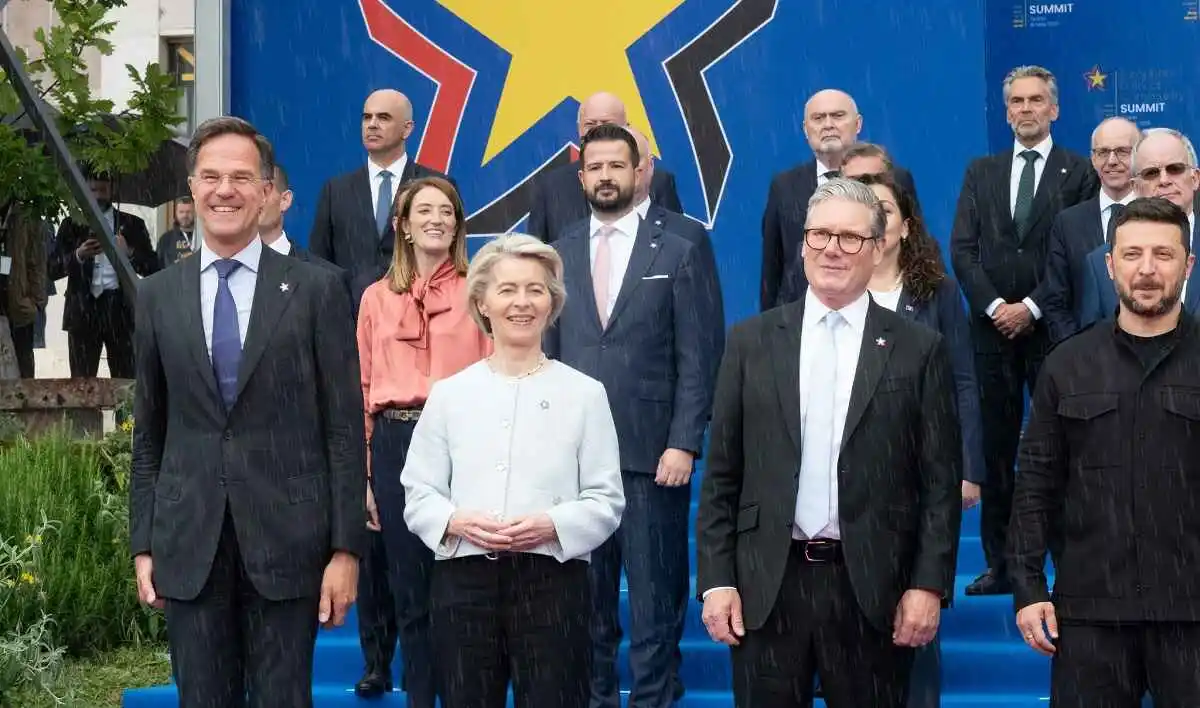As Ukraine’s front lines hold against relentless Russian advances, a fierce transatlantic debate is raging over one of the war’s most tantalizing untapped weapons: $300 billion in frozen Russian central bank assets. Trapped in Western vaults since Moscow’s 2022 invasion, these funds could supercharge Kyiv’s war chest – but at what cost to global finance and investor trust?
In a bold pivot, the European Commission is pushing a creative “reparations loan” scheme to unlock up to €140 billion for Ukraine without outright seizing the cash. It’s financial wizardry designed to dodge international law pitfalls, but critics warn it could ignite Russian revenge, spike borrowing costs, and send shockwaves through Europe’s markets.
The Assets: A Frozen Fortune with Strings Attached
Russia’s invasion froze roughly $300 billion of its sovereign reserves abroad – mostly in bonds, securities, and cash equivalents. The lion’s share, €185 billion, sits at Euroclear, the Brussels-based clearinghouse that’s become ground zero for this geopolitical chess match.
These aren’t just numbers on a ledger; they’re the economic handcuffs binding Moscow. Under EU sanctions – renewed every six months by unanimous vote – Russia can’t touch them. But now, with U.S. aid drying up under President Trump’s “America First” reboot since January 2025, Europe is eyeing the interest alone (already generating billions) and the principal as collateral for Ukraine’s survival.
Ukraine faces a $65 billion budget black hole over the next two years, with two-thirds of its spending fueling the war machine. Daily infusions from allies keep the lights on – but without fresh firepower, cracks are showing.
The Plan: Loans, Not Looting – Or So They Say
Enter the EU’s “elegant piece of financial engineering,” as one top analyst calls it. Here’s how it works:
- Step 1: Euroclear issues an interest-free loan to the EU, backed by the frozen assets’ value.
- Step 2: The EU funnels €140 billion to Ukraine – €45 billion to repay existing G7 loans, the rest as fresh aid.
- Step 3: Repayment? Tied to future Russian reparations for war damages. If Putin pays up (a big if), everyone wins. If not, the assets stay locked, and the loan becomes a de facto grant.
European Commission President Ursula von der Leyen insists: “European taxpayers won’t foot the bill alone.” The scheme guarantees the loan via EU member states and taps into the bloc’s post-2028 budget for up to €100 billion more in support. It’s positioned as a bridge – not a heist – preserving the assets’ “immunity” under international law.
But skeptics smell a rat. Euroclear’s CEO has slammed it as “equivalent to confiscation” in the eyes of investors and Moscow, warning of fleeing clients and ballooning costs.
Allies Divided, Russia Fuming
- EU Power Players: France and Germany balk at full seizure, fearing it erodes sovereign immunity and spooks markets. Belgium, Euroclear’s home, demands shared risks – its PM shot down the plan at October’s summit without ironclad backups. Pro-Ukraine hawks in Poland, the Baltics, and Nordics demand bolder action.
- U.S. Twist: Trump’s team has halted new Ukraine funding, floating a G7-tied peace plan: Funnel $100 billion from Russian assets into reconstruction, with Washington skimming 50% of “profits” and Europe matching the pot. It’s a carrot-and-stick for negotiations – but leaves Europe holding the bag.
- Russia’s Red Line: Moscow vows lawsuits, asset grabs in retaliation (including Western holdings frozen there), and economic sabotage. “Theft is theft,” one Kremlin advisor spat, hinting at nationalizing Euroclear’s Russian accounts to create chaos.
G7 nations have already loaned Ukraine billions, repayable via asset interest – a softer precursor. But unanimity is fragile: Hungary and Slovakia, cozy with Moscow, could torpedo sanction renewals.
Legal Tightrope: Immunity vs. Justice
At its core, this is a sovereignty showdown. Frozen assets are state property, shielded by treaties – seizing them could set a precedent for endless tit-for-tat grabs worldwide. The reparations loan skirts this by keeping assets intact, but Russia calls bluff: Any “use” equals expropriation.
Analysts warn of a “clusterfuck” if it backfires – higher Euroclear fees passed to clients, investor exodus from Europe, and a chill on global safe-haven status. One expert quipped: “It solves a lot of problems at once – but creates a few nuclear ones.”
Ethically? It’s poetic justice: Fund Ukraine’s defense with the invader’s own war chest. But practically, it risks prolonging the conflict if Putin doubles down.
Ukraine’s Lifeline or Europe’s Headache?
For Kyiv, it’s existential: These funds could buy drones, ammo, and salaries – buying time for a negotiated peace or battlefield edge. Failure means IMF bailouts, slashed services, and potential collapse.
For Europe, it’s a test of resolve. Resolving this could cement the EU as a geopolitical heavyweight. Botch it? Expect market jitters, legal quagmires, and a blueprint for adversaries to freeze Western assets in future spats.
Brussels Showdown Looms
October’s EU summit fizzled without consensus. Eyes now turn to December 18 in Brussels, where a legal blueprint drops. Sanctions clock ticks – renewal hangs by a thread.
As von der Leyen rallies: No scenario leaves Europe paying solo. But with Trump eyeing deals and Putin plotting counters, the $300 billion question remains: Will frozen assets thaw Ukraine’s path to victory – or freeze global finance in fear?
Search terms this article ranks for: frozen Russian assets Ukraine 2025, EU reparations loan Russia, $300 billion seized assets war funding, Euroclear Russia sanctions risks, Trump Ukraine aid cut impacts, G7 Russia asset seizure debate, international law frozen sovereign assets, Belgium Euroclear retaliation fears, Ursula von der Leyen Ukraine loan proposal
